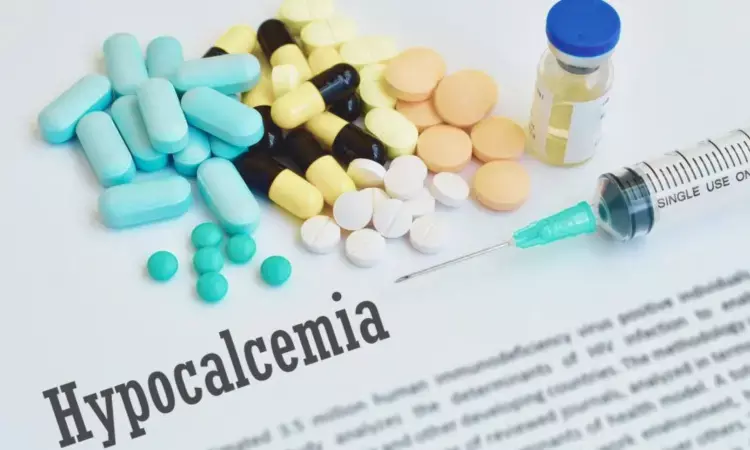- Home
- Medical news & Guidelines
- Anesthesiology
- Cardiology and CTVS
- Critical Care
- Dentistry
- Dermatology
- Diabetes and Endocrinology
- ENT
- Gastroenterology
- Medicine
- Nephrology
- Neurology
- Obstretics-Gynaecology
- Oncology
- Ophthalmology
- Orthopaedics
- Pediatrics-Neonatology
- Psychiatry
- Pulmonology
- Radiology
- Surgery
- Urology
- Laboratory Medicine
- Diet
- Nursing
- Paramedical
- Physiotherapy
- Health news
- Fact Check
- Bone Health Fact Check
- Brain Health Fact Check
- Cancer Related Fact Check
- Child Care Fact Check
- Dental and oral health fact check
- Diabetes and metabolic health fact check
- Diet and Nutrition Fact Check
- Eye and ENT Care Fact Check
- Fitness fact check
- Gut health fact check
- Heart health fact check
- Kidney health fact check
- Medical education fact check
- Men's health fact check
- Respiratory fact check
- Skin and hair care fact check
- Vaccine and Immunization fact check
- Women's health fact check
- AYUSH
- State News
- Andaman and Nicobar Islands
- Andhra Pradesh
- Arunachal Pradesh
- Assam
- Bihar
- Chandigarh
- Chattisgarh
- Dadra and Nagar Haveli
- Daman and Diu
- Delhi
- Goa
- Gujarat
- Haryana
- Himachal Pradesh
- Jammu & Kashmir
- Jharkhand
- Karnataka
- Kerala
- Ladakh
- Lakshadweep
- Madhya Pradesh
- Maharashtra
- Manipur
- Meghalaya
- Mizoram
- Nagaland
- Odisha
- Puducherry
- Punjab
- Rajasthan
- Sikkim
- Tamil Nadu
- Telangana
- Tripura
- Uttar Pradesh
- Uttrakhand
- West Bengal
- Medical Education
- Industry
Proton Pump Inhibitors Linked to Increased Risk of Hypocalcemia After Thyroid Surgery, suggests study

A new study published in the journal of Laryngoscope Investigative Otolaryngology revealed that patients using proton pump inhibitors (PPIs) may have a higher likelihood of developing both short-term and permanent hypocalcemia following thyroidectomy. This largest study to date confirms a significant association between PPI use and increased risk of post-thyroidectomy hypocalcemia.
One of the most frequent surgical procedures is thyroidectomies. The only effective treatment for thyroid cancers and benign conditions like multinodular goiter with compressive symptoms is thyroid surgery. One recognized side effect of thyroidectomy is hypocalcemia. Thyroidectomy patients run the danger of devascularization or unintentional parathyroid gland avulsion.
The incidence of both temporary and permanent postoperative hypoparathyroidism varies from 0.3% to 49% and 0% to 13%, respectively, according to the literature. PPIs, or proton pump inhibitors, are frequently prescribed drugs. They make up about 5–10% of all prescriptions, and their usage is still growing. PPIs are recommended for a number of common conditions, including Barrett's esophagus, Helicobacter pylori infection, gastric and duodenal ulcers, and gastroesophageal reflux disease (GERD).
According to a previous study, individuals on PPIs had a markedly higher risk of both temporary and persistent hypocalcemia following parathyroidectomy. Thus, this study was to ascertain the prevalence of hypocalcemia in individuals on proton pump inhibitors after thyroidectomy.
The TriNetX Research Network was used to identify patients who had complete thyroidectomies between 2012 and 2022. The patients with and without prescriptions for proton pump inhibitors were compared in terms of the incidence of temporary hypocalcemia (0–6 months after thyroidectomy) and permanent hypocalcemia (6–12 months after thyroidectomy).
Prior to surgery, 21.3% (n = 7081) of the 33,309 patients received proton pump inhibitors. Hypocalcemia occurred in 50.9% and 10.76% of thyroidectomy patients on proton pump inhibitors at 0–1 and 6–12 months, respectively, compared to 48.3% and 7.22% of patients not on proton pump inhibitors. Hypocalcemia at 0–1, 1–6, and 6–12 months was much more likely to occur in patients on proton pump inhibitors. Additionally, patients on proton pump inhibitors had a higher chance of going to the ED 1 to 6 months after surgery.
Overall, after a thyroidectomy, hypocalcemia is frequently transient and goes away for most people. This researchers discovered that PPI users may be more susceptible to both temporary and long-term hypocalcemia. To definitively ascertain if using PPIs lowers the risk of coming to the emergency department after surgery and brings the risk of hypocalcemia back to baseline, more research is required.
Source:
Rossip, M., Lorenz, F. J., Goyal, N., & Goldenberg, D. (2025). Hypocalcemia after thyroidectomy in patients taking proton pump inhibitors. Laryngoscope Investigative Otolaryngology, 10(3), e70163. https://doi.org/10.1002/lio2.70163
Neuroscience Masters graduate
Jacinthlyn Sylvia, a Neuroscience Master's graduate from Chennai has worked extensively in deciphering the neurobiology of cognition and motor control in aging. She also has spread-out exposure to Neurosurgery from her Bachelor’s. She is currently involved in active Neuro-Oncology research. She is an upcoming neuroscientist with a fiery passion for writing. Her news cover at Medical Dialogues feature recent discoveries and updates from the healthcare and biomedical research fields. She can be reached at editorial@medicaldialogues.in
Dr Kamal Kant Kohli-MBBS, DTCD- a chest specialist with more than 30 years of practice and a flair for writing clinical articles, Dr Kamal Kant Kohli joined Medical Dialogues as a Chief Editor of Medical News. Besides writing articles, as an editor, he proofreads and verifies all the medical content published on Medical Dialogues including those coming from journals, studies,medical conferences,guidelines etc. Email: drkohli@medicaldialogues.in. Contact no. 011-43720751


